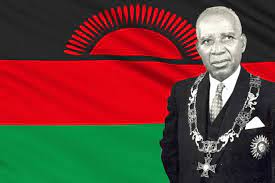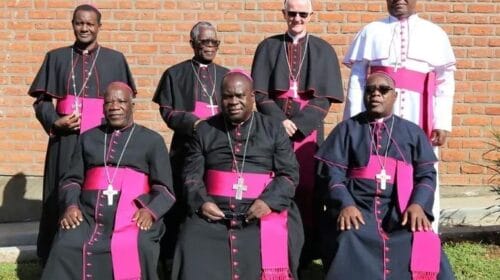The people have spoken in Rwanda
A standby generator though allowed to get the announcement of the Seychelles Electoral Commission on streaming TV, courtesy of Smile Uganda’s high speed 4GLTE service. More about that later, though the results were announced here as it happened last night ahead of literally all other news media covering the Presidential runoff election in the Seychelles.
Also in the spotlight was Rwanda, where after months of public consultations between lawmakers and their constituents, a referendum was taking place to establish if a change of the present constitution met with the favour of the voters.
Favour is understating the result of course as 98 percent of the votes were counted overnight affirming those changes, which permit President Paul Kagame to stand for a third 7 year term after first being elected President in 2003.
Contrary to suggestions continuously peddled in sections of the media did ‘Uncle Paul’ as many of his admirers and friends call him, not become president after the 1994 genocide and after the killers had been driven out of the country. President Kagame first stood for the office of President in 2003 and was then re-elected when his first seven year term had come to an end.
There is a mixed picture vis a vis constitutional term limits found across the East African Community. Tanzania, after founder father President Mwalimu Julius Nyerere had stepped down, adopted a two term limit and past presidents Ali Hassan Mwinyi, Benjamin Mkapa and more recently Jakaya Kikwete all respected this rule without any effort to changing it. Kenya, after constitutional changes, saw former President Daniel arap Moi serve his two terms permitted and his successor Mwai Kibaki too stepped down after his second term, making way for incumbent Uhuru Kenyatta, son of the late founder father president Mzee Jomo Kenyatta.
In Uganda was the 1994/5 constitution changed some years ago, lifting the term limits, with parliament voting in favour of such a change with a very large majority meeting the quorum requirements. Subsequently is incumbent President Yoweri Kaguta Museveni able to stand for another term in the ongoing election campaign, which will see Ugandans voting for all offices from President to Member of Parliament and down to the lowest council positions. For President Museveni, whom a recent opinion poll by a national daily newspaper not generally seen as in favour of the government put at a nearly 60 percent lead over his nearest rival who only gathered just under 21 percent, it will be his last term under the present constitution, as, when re-elected in February, he will eventually reach the age limit of 75 years after which he can no longer be a candidate though serve out his term.
Take Burundi, where the Arusha Peace Accord gave regime leader Nkurunziza a two term limit, something the new Burundian Dictator conveniently ignored and, after engineering votes and court verdicts in his favour, held sham elections to stay in power, triggering a flood of blood in the country as violence swept East Africa’s smallest nation.
This was another hotspot for breaking news to be monitored, as the African Union held a crucial meeting discussing the deployment of peace keeping troops into Burundi, whether the regime likes it or not. With nearly 200.000 refugees already perched into camps across the borders in Tanzania, Rwanda and Congo, and ethnically motivated revenge killings by regime militias and regime friendly military units, has the emerging word ‘genocide’ triggered alarm bells across Africa. The word found its way into the social media in the region only days ago when reportedly some 200 bodies were found dead execution style, many with hands bound behind their back and shot into the head. This apparently triggered a panic reaction among AU and EAC leaders who simply can no longer afford to stand by and watch such killings without a strong reaction while being outspoken critics of the ICC in The Hague, the only institution however so far to indict, charge and prosecute African leaders accused of crimes against humanity, while the AU or other continental bodies have stood by atrocities as onlookers.
A mixed bag no doubt with the two largest East African countries having term limits in their constitution while Uganda has none at the moment and in the case of Rwanda the limit was just lifted for President Kagame. There however, will term limits return after, should ‘Uncle Paul’ decide to run again – and this correspondent openly admits his hope that he will – a new two term limit of five years will come into effect in 2024.
Rwandans are united, except for the most rabid genocide deniers and anti-government elements, to give their president another term and to allow him proceed with the positive changes his government instituted over the past 12 years.
While his government style is no doubt disciplinarian, rather than authoritarian as has been said elsewhere, has the transformation of the old into the new Rwanda brought with them an economic miracle. Tourism has grown in leaps and bounds, becoming the largest foreign exchange earner last year with over 303 million US Dollars, and rising. Roads were constructed right across the country, including in the rural areas, to permit access of farmers to the markets. Kigali is regularly rated as the safest and cleanest city in Africa. Corruption, endemic elsewhere in Africa, has been ruthlessly tackled. Turning Rwanda into an ICT hub has been successful so far and the emergence of closely monitored mining has added a further economic pillar to the country’s economy. Donor funds are, another unusual development for Africa, meticulously accounted for in a transparent fashion. Rwanda seconded troops and police to UN and AU missions as far as Haiti and as near as the Sudan, earning the country respect over how their peacekeepers conduct themselves, often in stark contrast to those of other countries which were found engaged in dubious deals, rape allegations and other crimes.
Here, the change of the Rwandan constitution got the thumbs up by both voters and the better informed international media while in other places like Burundi outrage is the best way to describe Nkurunziza’s feeble attempts to stay in power.
The Rwandan people have spoken and the country can now put politics behind it for a while and prepare for the festive season. Congratulations to the Rwandan voters who conducted themselves maturely and voted wisely, ensuring the country’s future success under a principled and enlightened leadership.



